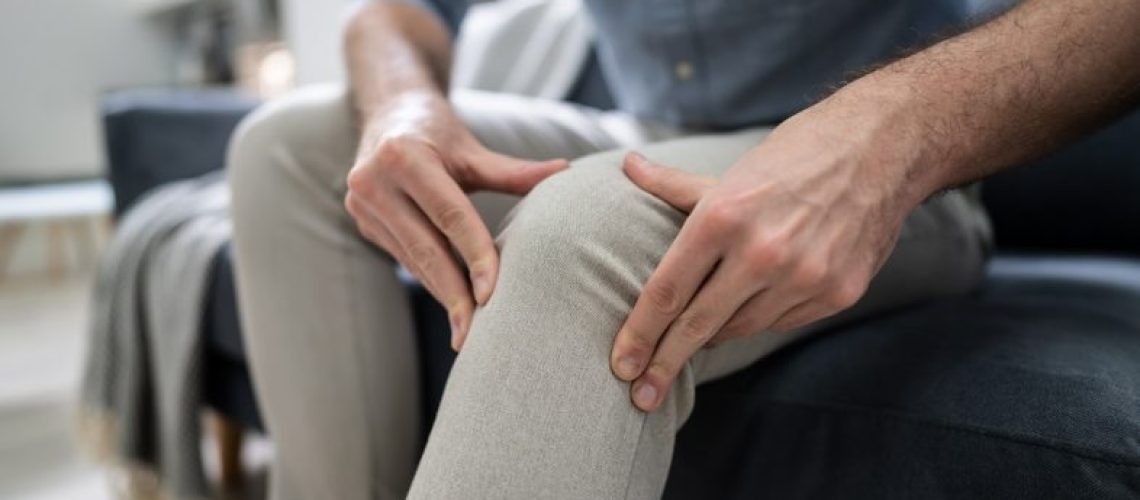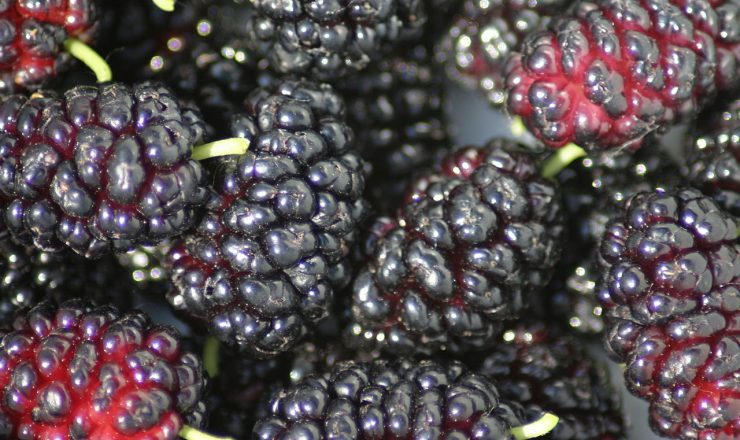Knee Pain After Drinking Alcohol: Are They Related?
While a few bruises and scratches after a clumsy night of drinking are simply standard fare in many partiers’ lives, swelling and pain in the knees, ankles, or virtually any other joint in the body is often a direct consequence of the alcohol consumption itself and not an injury.
The primary cause of this pain is clinically referred to as tissue inflammation, of which presents in an individual due to the particular biochemical processes that occur when someone intakes excess volumes of ethanol alcohol, especially on a regular basis as is the case of habitual or heavy drinkers.
Generally, knee pain and other kinds of connective tissue pain after drinking alcohol are a sign of a medical condition known as hyperuricemia, of which is most likely caused by an individual’s habitual and excessive alcohol consumption over a long period of time.
What is Inflammation?
Inflammation is a set of symptoms characterized by the body desiring to protect itself from infection and other exogenous materials via an acute or chronic immune response, depending on the particular cause of the inflammation in the first place.
In the case of regular and excessive alcohol consumption, the presence of inflammation is because of many factors that eventually crop up in the drinker’s body as the alcohol takes its toll on their metabolic, circulatory, gastrointestinal and excretion-related organ systems.
Fortunately, inflammation caused by alcohol consumption is generally acute and will often go away as soon as the individual alters their drinking habits, often also curing some other symptoms directly related to alcohol abuse.
How Does Alcohol Cause Inflammation and Pain?
The particular biochemical pathway behind alcohol and the symptom of inflammation is not entirely understood, but many theories have been put forth such as the metabolic byproducts of alcohol dehydrogenase being converted into uric acid.
Another reason alcohol is theorized to result in inflammatory symptoms are by the nature of alcohol as a diuretic agent, of which will cause the body to drain fluids and minerals from its cellular structures in order to aid in the excretion of the alcohol.
This is in combination with the vasodilatory effect of alcohol at moderate levels, of which will directly affect venous fluid flow throughout the body – an effect that is reversed at even higher levels of blood alcohol concentration, wherein alcohol will then act as a vasoconstrictor and result in such things like headaches and decreased peripheral blood flow.
As can be summarized from these many possible pathways, the particular reason behind joint pain and swelling after the consumption of alcohol may be unforeseen and not immediately obvious, and likely in combination of more than one particular effect of alcohol.
Alcohol, Dehydration and Knee Pain
Another major factor in knee pain after drinking alcohol is the diuretic effect of alcohol, of which was briefly mentioned in the previous section of this article.
The joints (especially the knees) are lubricated by a liquid produced by the body, of which is referred to as synovial fluid.
Also known as joint fluid, synovial fluid reduces friction between the end plating of two bones as well as the articular soft tissue located therein, allowing for seamless movement that does not end with the individual slowly grinding down or damaging their connective and osseous tissues.
However, the production of this synovial fluid is reduced or otherwise impacted by alcohol, both due to a loss of available fluid with which to produce said synovial fluid with as well as an affected ability for the drinker’s soft tissue to recover while under the influence of alcohol, causing the joints to accrue more damage over time.
Does Alcohol Help with Knee Pain?
While alcohol no doubt reduces an individual’s pain sensitivity once they have reached the point of intoxication, it is a poor form of chemically driven pain relief and can otherwise only make the problem worse instead of fixing it.
This is especially true in cases wherein the symptoms of pain and inflammation are of an acute nature and not due to a chronic condition or illness, causing the many inflammatory and otherwise catabolic effects of alcohol to not only worsen the symptoms but also possibly extend the length of time that they are present.
Even in the case of chronic joint pain such as in the case of a serious knee injury or certain medical conditions like arthritis and gout, the regular use of alcohol as a pain killing compound will not only lead to further progression of the condition but also possible alcohol dependence and addiction.
As such, it is not advisable at all to use alcohol as a treatment for knee pain, either to cure its symptoms or to hopefully cure the issue itself.
Can Alcohol Make Gout Worse?
Alcohol can not only worsen the symptoms and progression of gout but also increase the risk of developing it – especially in individuals of either excessive alcohol consumption or those who are already predisposed to developing gout due to lifestyle and genetic factors.
The particular pathophysiology behind this increased risk of gout or the worsening of its symptoms is in the fact that subsequent metabolism of alcohol will lead to the increased presence of uric acid in the bloodstream and throughout other tissues in the body.
In some cases, alcohol can even cause gout to flare up or resurface, even when only consumed occasionally and in moderate volumes.
As always, if one has been diagnosed with gout or similar health conditions by a medical professional, it is important to first consult with said medical professional prior to intaking alcohol in any significant capacity.
Can Alcohol Make Arthritis Worse?
Whether the arthritis is of the histologically degenerative type or one due to an autoimmune issue, intake of alcohol even in minute volumes can result in rather negative effects that are better off avoided entirely.
As previously mentioned in the last section of this article, gout (a form of arthritis) can be triggered or worsened by the simple intake of alcohol in moderate amounts, a fact that is no different for more mild kinds of arthritis.
While one particular study has discovered a positive connection between red wine and the cessation of arthritic symptoms in certain individuals, the majority of clinical literature appears to believe that alcohol not only worsens but can also instigate degeneration of osseous tissues, increasing the risk of developing arthritis.
This is especially the case with beer, whiskey, and other types of brown liquors with a high presence of certain compounds that can cause an increased inflammatory response in the body’s tissues.
Of course, any amount of alcohol consumption is generally inadvisable for sufferers of rheumatoid arthritis or osteoarthritis, and it is best for the individual to keep their drinking to the international standard of moderation as well as to only do so beneath the guidance of their doctor.
Can Alcohol Make Autoimmune Diseases Worse?
Autoimmune diseases are among some of the most restrictive and sensitive medical conditions an individual can develop, with small things such as red meat or moderate amounts of alcohol being sufficient enough to trigger a flare up or a worsening of the autoimmune diseases’ symptoms.
Especially in the case of gastrointestinal autoimmune diseases such as celiac or Crohn’s disease, the irritation and inflammation caused by alcohol to the epithelial lining of the stomach and intestines can lead to severe discomfort and trigger said autoimmune diseases.
Considering the fact that autoimmune diseases are a disorder of the immune system – alcohol’s ability to alter or otherwise impact the drinker’s immune system can also play a major factor in the development or progression of an autoimmune disease.
Can You Mix Alcohol with Prescription Painkillers?
In the case of a medical professional prescribing painkillers for individuals experiencing knee pain and similar injuries or conditions, it is generally a bad idea to mix said pain relief medication with alcohol consumption.
Bright Future Recovery, an alcohol and drug detox center says that his is due to the nature of most prescription painkillers, most of which are of the non-steroidal anti inflammatory drug (NSAID) class or even under the famous opioid drug class, both of which can have their mechanism of action and effects affected by the presence of alcohol in the patient’s body.
Especially in the case of non-steroidal anti-inflammatory drugs, concomitant use with high proof alcohol can result in the development of ulcers or even internal bleeding as the combined effect of alcohol and said anti-inflammatory drugs can thin or damage the epithelial lining of the stomach and intestines.
When combining prescription opioid painkillers, the central nervous system depressant effects of both alcohol and opioid drugs can combine, creating a potentially lethal situation wherein the patient’s ability to remain conscious, perform basic functions or even breathe are all limited.
Works Cited:
- Kim, Seong-Kyu MD, PhDa,∗; Bae, Jisuk MD, PhDb; Choe, Jung-Yoon MD, PhDa The relationship between alcohol consumption and knee osteoarthritis in Korean population over 50 years-old, Medicine: February 12, 2021 – Volume 100 – Issue 6 – p e24746 doi: 10.1097/MD.0000000000024746
- Yamanaka H. [Alcohol ingestion and hyperuricemia]. Nihon Rinsho. 1996 Dec;54(12):3369-73. Japanese. PMID: 8976122.
- Lu B, Solomon DH, Costenbader KH, Karlson EW. Alcohol consumption and risk of incident rheumatoid arthritis in women: a prospective study. Arthritis Rheumatol. 2014 Aug;66(8):1998-2005. doi: 10.1002/art.38634. PMID: 24729427; PMCID: PMC4116451.
- Lu B, Solomon DH, Costenbader KH, Keenan BT, Chibnik LB, Karlson EW. Alcohol consumption and markers of inflammation in women with preclinical rheumatoid arthritis. Arthritis Rheum. 2010 Dec;62(12):3554-9. doi: 10.1002/art.27739. PMID: 20827783; PMCID: PMC2995846.



